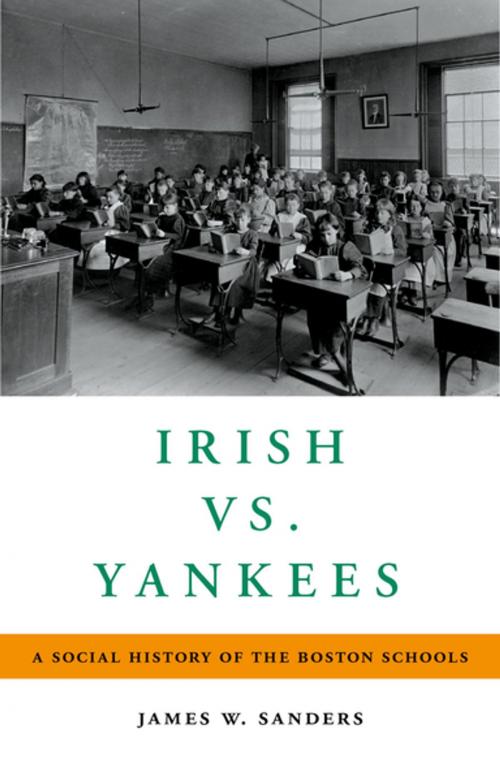Irish vs. Yankees
A Social History of the Boston Schools
Nonfiction, Reference & Language, Education & Teaching, History, Americas, United States, State & Local, Religion & Spirituality, Reference| Author: | James W. Sanders | ISBN: | 9780190681593 |
| Publisher: | Oxford University Press | Publication: | February 2, 2018 |
| Imprint: | Oxford University Press | Language: | English |
| Author: | James W. Sanders |
| ISBN: | 9780190681593 |
| Publisher: | Oxford University Press |
| Publication: | February 2, 2018 |
| Imprint: | Oxford University Press |
| Language: | English |
Boston entered the twentieth century as an Irish Catholic city, no longer the "Yankee" town of its Puritan past. The dominance of the Irish Catholic population, swelled by the "potato famine" masses, gave it political control of the city, and significantly, control of its public schools. Unlike in other American cities, Boston Catholics had little need for a large or influential parochial system: they had the School Committee, school principals, and the teachers. In Irish vs. Yankees, James W. Sanders takes a new look at this critical period in the development of Boston schools, from 1822, when Boston officially became a city, to the Second World War. Framing the discussion around the Catholic hierarchy, he considers the interplay of social forces in the nineteenth and early twentieth centuries that led to the political rise of the Irish Catholic over the native Brahmin and the way this development shaped Boston's schools. From Bishop John Fitzpatrick to Boston College, Sanders introduces a cast of colorful characters and institutions to this tale of the education and religion in one of America's most prominent cities.
Boston entered the twentieth century as an Irish Catholic city, no longer the "Yankee" town of its Puritan past. The dominance of the Irish Catholic population, swelled by the "potato famine" masses, gave it political control of the city, and significantly, control of its public schools. Unlike in other American cities, Boston Catholics had little need for a large or influential parochial system: they had the School Committee, school principals, and the teachers. In Irish vs. Yankees, James W. Sanders takes a new look at this critical period in the development of Boston schools, from 1822, when Boston officially became a city, to the Second World War. Framing the discussion around the Catholic hierarchy, he considers the interplay of social forces in the nineteenth and early twentieth centuries that led to the political rise of the Irish Catholic over the native Brahmin and the way this development shaped Boston's schools. From Bishop John Fitzpatrick to Boston College, Sanders introduces a cast of colorful characters and institutions to this tale of the education and religion in one of America's most prominent cities.















